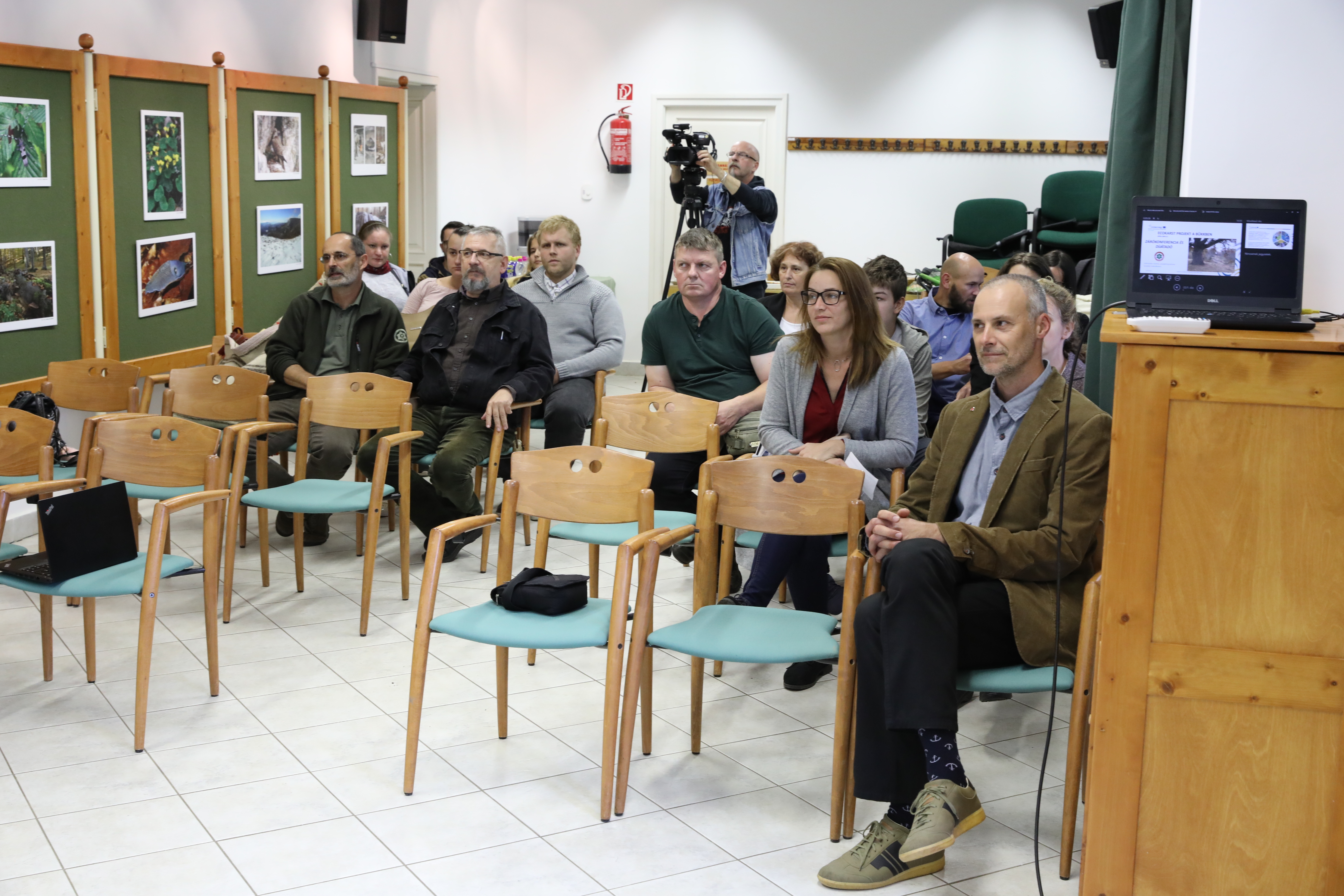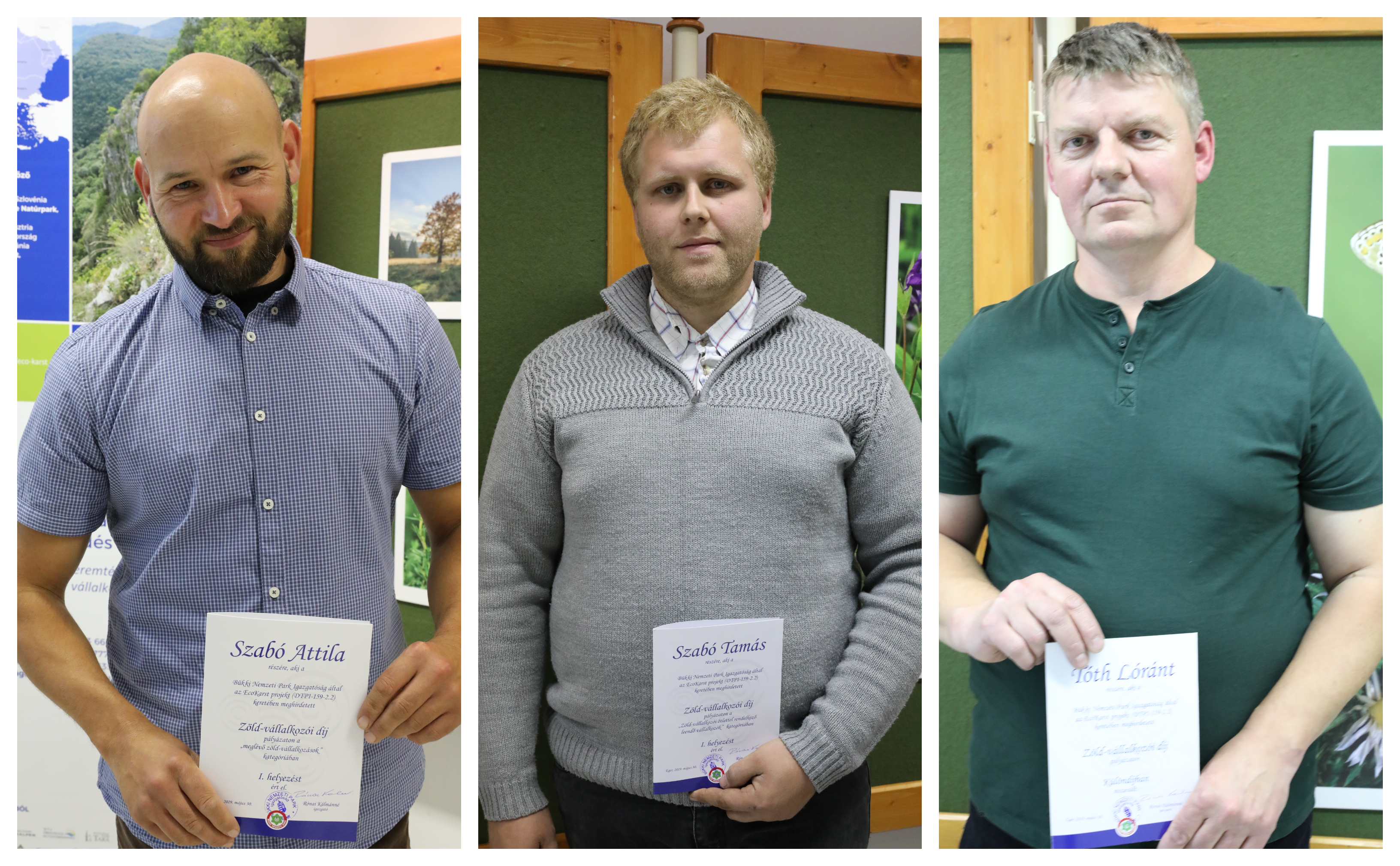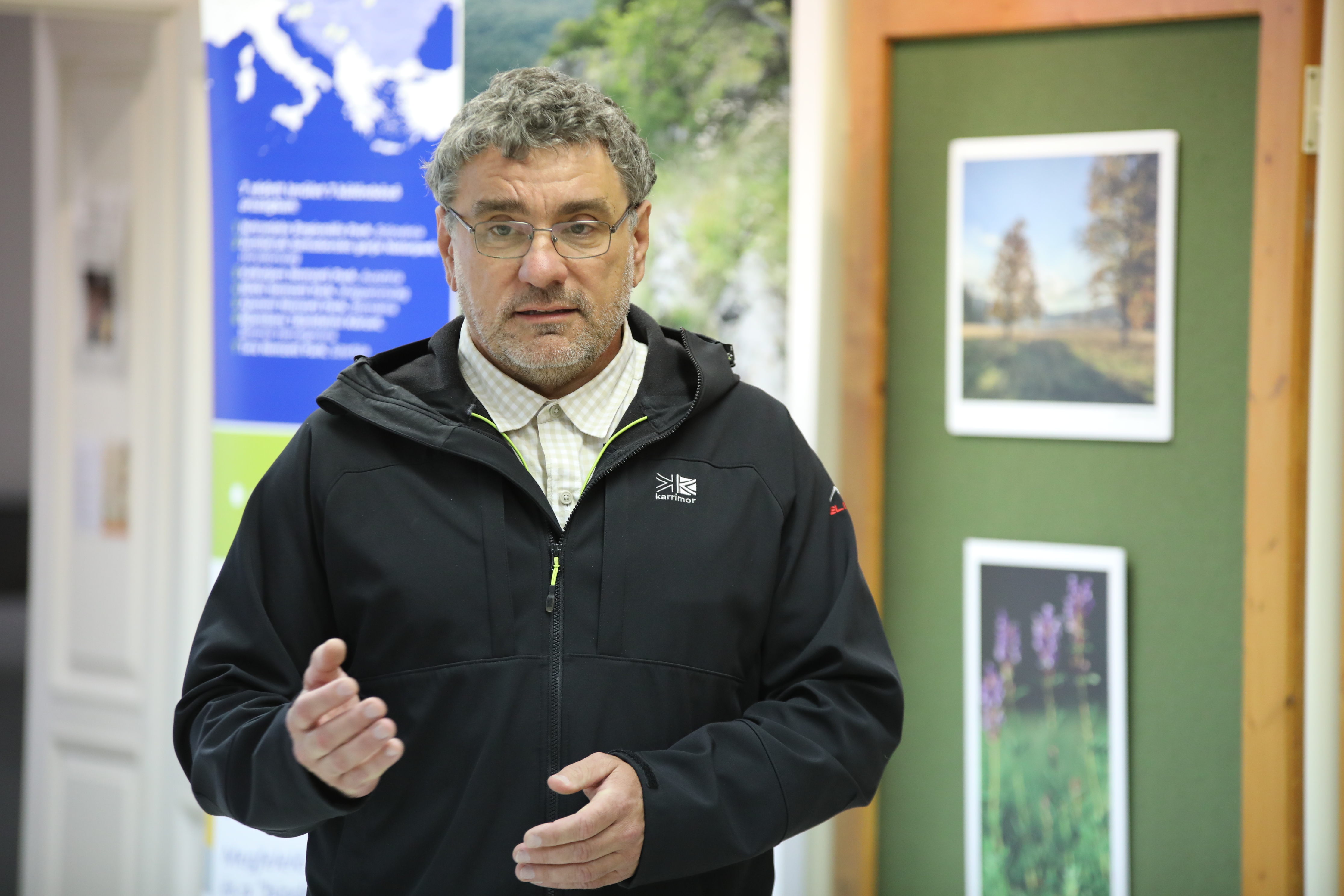ECO KARST - Pro Biodiversity Award in the Bükk National Park
28-06-2019
Activities in protected natural areas can only be successful if the people living there find the opportunity for improving their lives while respecting the law of nature. In protected areas, certain activities are limited by nature conservation considerations, but there are companies that not only benefit from protected values, but also contribute to the conservation and development of biodiversity. These are termed biodiversity-friendly or green businesses. The Green Entrepreneurship Award, which was first published by the Bükk National Park Directorate, served the purpose of mapping and evaluating such businesses. The award ceremony was held on May 30, 2019, and entrepreneurs were awarded in three categories.

Attila Szabó won in the existing business category. Attila Szabó operates a small guest house from 2010 with a growing circle of guests. It organizes bird watching tours for its visitors, mainly to the Bükk and Hortobágy areas. His main activity is animal husbandry, grazing with his own hucul horses and goats. He wants to develop the stock (racka, cigars) and also plans to breed native shepherd breeds in the Carpathian Basin.
In the category of the business idea, Tamás Szabó was awarded. As a young beekeeper, he has been caring for 30 bee families for 11 years. He wants to develop the bee population for 100-150 families. His long-term plans include the establishment of a beehive house where people can benefit from the services provided by bees and become familiar with bees and their healthy and natural products. He regards beekeeping as a traditional activity that also contributes to the preservation of biodiversity.
Lóránt Tóth, wood carver and folk artist has received a special award. Wooden ornaments and utensils have received many high awards and awards. The production of the products is carried out by himself, and the sale of the products by the family. His work is entirely a tradition-related activity, producing raw materials for several old forgotten crafts (gingerbread percussion, wooden bottles, printing presses of blue paint).

Little research has been done so far on the state of ecosystems and its effects, and there is no satisfactory knowledge of the evaluation of ecosystem services. The ECO KARST project, which aims to contribute to the conservation and sustainable development of the karstic areas of the Danube applicant countries, contributes to this. The karst areas are one of our most vulnerable landscapes, which also provide a rich flora and fauna. ECO KARST project enabled all participating partners to share and exchange information, experience and good practices.

As all other pilot areas, Bukk National Park, first mapped out the services related to the ecosystem of the region and evaluated them. The examined the economic conditions of the region, especially the possibilities of introducing and developing biodiversity-friendly businesses. The results are presented in the "action plans" of the individual karst areas, which were prepared in cooperation with local community during previously organized set of workshops - the social organizations, authorities, farmers and tourism managers working within Bukk National Park.
A training for entrepreneurs was provided to strengthen green businesses in the area, where participants were provided with economic, entrepreneurial and communication skills.
The ECO KARST project was committed to develop a methodology that can later be used by other countries and nature conservation organizations in their own area, based on the information, analyzes and results achieved during the project. The collaboration with other protected karst areas also helped strategic planning, the use of best practices, and the wiser use of natural and cultural resources. A Common Strategy for Protection and Sustainable use of Ecosystem Services in Karst eco-regions that includes key recommendations for protection and sustainable use of ecosystem services was developed as a comprehensive and key result of the project.
